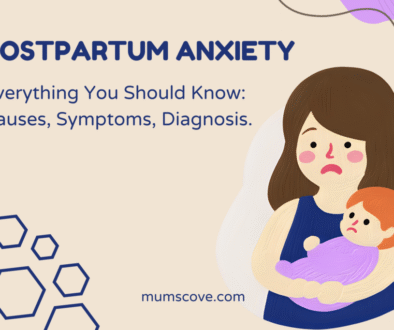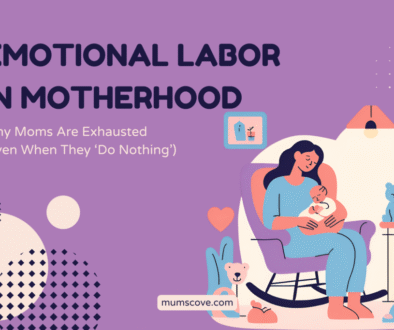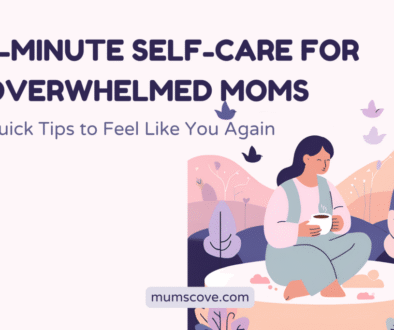The Truth About Mom Guilt: How to Overcome It with Self-Compassion and Science
As mothers, we all experience that familiar pang of guilt—the kind that tugs at our hearts when we leave our children at daycare or when we can’t attend every school event. You know the feeling: mom guilt. It feels overwhelming, suffocating, and at times, it makes you question everything. I’ll never forget the day my daughter came home from her first day at daycare. Her little face was swollen from crying, and my heart shattered. It was a reminder that I wasn’t there to comfort her when she needed me the most.
In that moment, I thought about quitting my job to stay with her. But what does science say about this emotional rollercoaster? Can we really overcome mom guilt? And more importantly, how can we manage it without letting it control our lives? Let’s dive into the science behind mom guilt and explore ways to navigate these feelings.
The Science of Mom Guilt: Why We Feel It
Mom guilt isn’t just an emotional reaction; it’s backed by science. According to psychologists, mom guilt stems from the conflict between our responsibilities as mothers and our desire to be the perfect parent. This guilt is deeply rooted in evolutionary psychology, where mothers are wired to be highly protective and nurturing of their children. The pressure to always be there for our children, to meet their emotional, physical, and educational needs, can feel like an unending challenge.
Stress and hormones play a huge role in this. When you’re away from your child, especially in those early years, your brain releases stress hormones like cortisol. This physiological response can intensify feelings of guilt and anxiety, leading to mom burnout.
But here’s the thing: self-care and finding a work-life balance is not only crucial for your well-being but also for your child’s emotional development. Studies show that when mothers experience positive emotions and stress management, they are better equipped to support their children’s emotional health.
Real-Life Example: My Experience with Mom Guilt
I’ll never forget my first encounter with mom guilt when I dropped my daughter off at daycare. She had been in my arms every moment of her life until then. Her tiny hand waved goodbye, and I could feel my heart break. But the real punch came when I picked her up. Her eyes were puffy and swollen, the evidence of a long day of tears.
I cried in the car on the way home, feeling like I had failed her. The thought crossed my mind: should I quit my job and stay home? But then, I realized that I wasn’t just a mom. I was a person with dreams, passions, and a career that also mattered. I needed to find balance, not just for her, but for me too. I wasn’t giving up my identity; I was balancing both my love for her and my need for personal fulfillment.
This experience marked the beginning of my journey to understanding how to manage mom guilt—and it wasn’t easy. But through time, self-compassion, and understanding the science behind my feelings, I began to make peace with the guilt.
Tips for Overcoming Mom Guilt: Practical, Science-Backed Strategies
So, how do we manage this overwhelming mom guilt? It’s not about erasing the guilt entirely but about learning how to cope with it healthily. Here are five strategies, backed by science, that can help:
- Embrace Imperfection: Research shows that perfectionism in mothers leads to higher stress levels. Accepting that you can’t always do everything perfectly is liberating. Your child doesn’t need you to be perfect; they need you to be present and loving.
- Practice Self-Compassion: A study published in the Journal of Child and Family Studies found that self-compassion is linked to lower levels of stress and guilt in mothers. Instead of berating yourself for not being there all the time, show yourself the same kindness you show your children.
- Seek Support and Build a Village: According to experts in child development, having a strong support system helps alleviate mom guilt. Whether it’s your partner, family, or friends, reaching out for help can lighten the load. No one can do it alone.
- Create a Healthy Work-Life Balance: Studies show that mothers who can set boundaries between their work and home life experience less guilt. Setting clear working hours, prioritizing time with your children, and giving yourself permission to take breaks is essential.
- Focus on Quality Over Quantity: The amount of time you spend with your child matters less than the quality of that time. According to a study from the University of Chicago, emotionally available and responsive parenting (even in small doses) is crucial for a child’s emotional development.
Finding Peace with Your Choices: How to Cope with the Guilt
The guilt might not go away overnight, and that’s okay. It’s a journey. But remember, the choices you make—whether it’s returning to work or staying home with your child—are yours to make, and they don’t define your worth as a mother. What matters is that you’re trying, and that in itself is enough.
In my experience, the more I accepted that mom guilt was a natural part of being a mother, the less it controlled me. Now, I embrace those moments of doubt and use them as reminders to check in with myself, to see if I’m taking care of my emotional health as much as I care for my family.
Conclusion: Embracing Your Journey as a Mom
If you’re experiencing mom guilt, know that you’re not alone. It’s a common feeling shared by so many mothers, and it’s okay to feel it. But it doesn’t have to define your motherhood journey. By understanding the science behind mom guilt, practicing self-compassion, and finding a healthy work-life balance, you can manage these feelings and be the best mom to your child—and the best version of yourself.
If you’re struggling, remember this: You are doing enough. You are enough.



